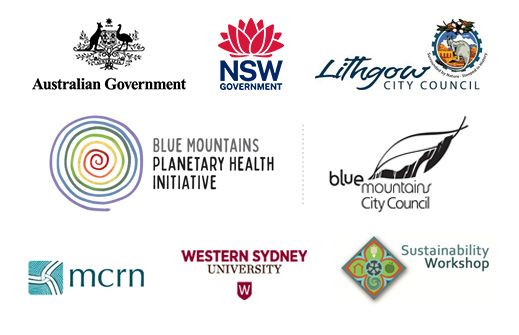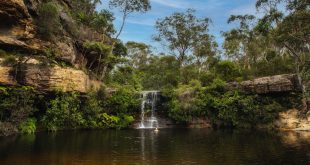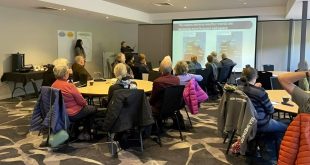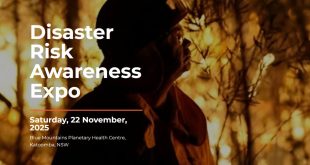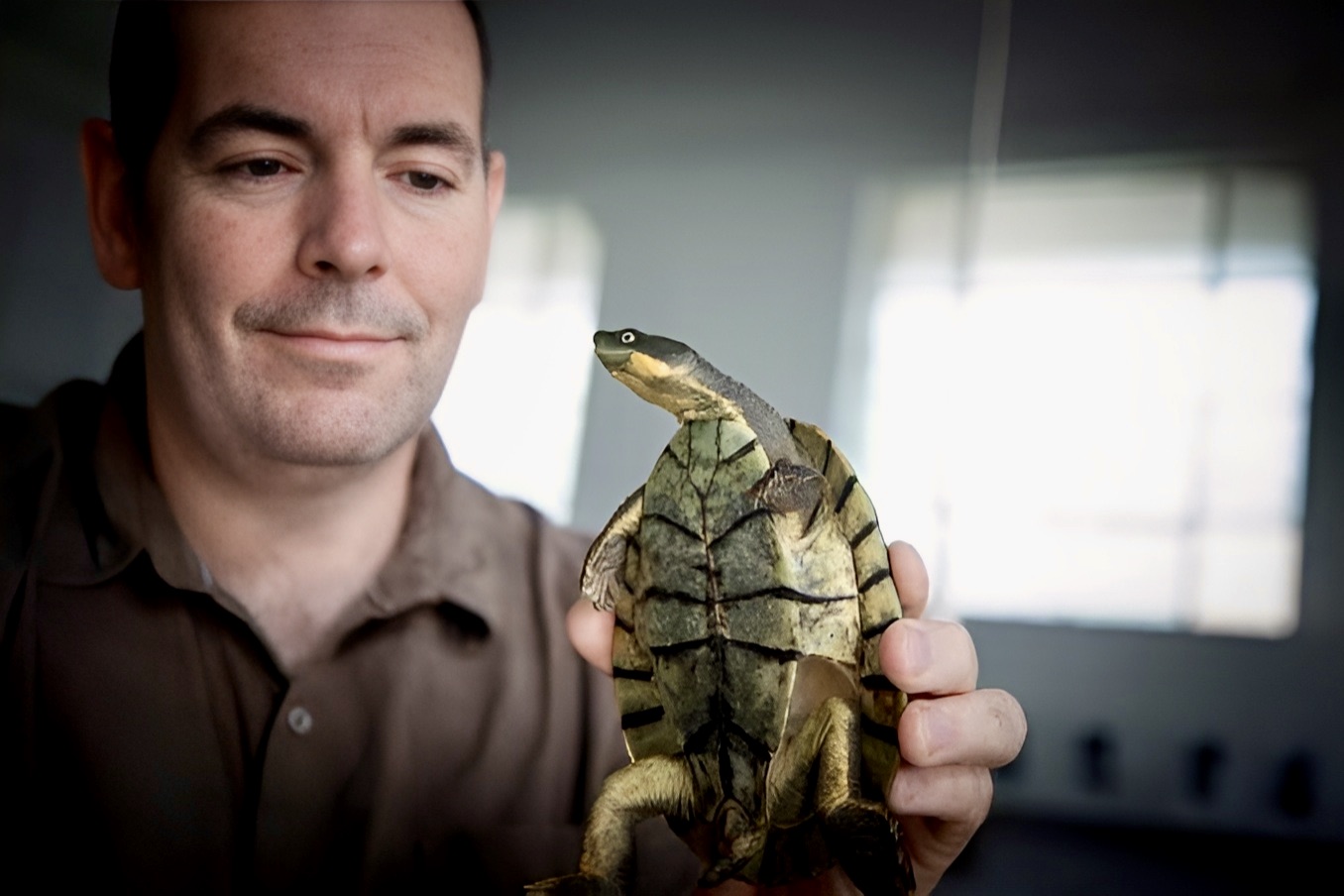
Western Sydney University Associate Professor Ricky Spencer and one of his river turtle friends. (Courtesy of The Nepean Science Hub)
Story by Gabiann Marin
November is turtle nesting season and this month hundreds of these popular reptiles will be travelling to nesting sites across the Blue Mountains. Thanks to Springwood resident, Associate Professor Ricky Spencer and the innovative citizen science project 1 Million Turtles, there is a lot everyone can do to make sure our local turtle populations are protected and healthy.
Ricky Spencer loves turtles, so much so that he has devoted his life to studying and protecting them. Ricky started out studying zoology as an undergraduate and soon discovered his passion for reptiles in general, and turtles in particular.
“I have been doing research on freshwater turtles since 1995 or 1996,” he reveals, explaining that over the time of his research the fortunes of Australian turtles have been declining. “Particularly in the Murray we are seeing a lot of dead turtles. In the last drought the river became so hyper saline. All these turtles were dying and were infested with marine tube worms.”
Key Points
- Healthy waterways are imperative for everyone, including turtles, so making sure you don’t hose off pesticides or chemicals into stormwater drains is a simple way to protect all aquatic species in our local river systems.
- Ricky Spencer created TurtleSAT: the first fully integrated citizen science app to focus on monitoring turtles.
- The goal of I Million Turtles is to increase turtle populations by 1 million through simple acts of monitoring and preventative conservation. It is designed to help the community monitor turtle nests, rescue adult turtles from roads and actively protect nesting sites from predators.
Share this article:
Being reliant on freshwater, an increase of salt and seawater can have truly detrimental effects on the endemic river turtle populations. The health of our waterways is a great indication of the health of our world in general and protecting them, and the creatures who dwell within, is a key part of creating liveable ecosystems for everyone.
“Turtles are the vacuum cleaners of the waterway,” Ricky explains. “Anything that dies in the water, like large fish kills, the turtles eat it and keep the water fresh and clean.” Without them, Ricky is quick to point out, our waterways would quickly deteriorate, yet it also makes them very vulnerable to changes in water quality, salination or water pollution. They are also at risk from predation by feral animals and loss of habit through damming, construction and natural disasters.
The good news is that Ricky’s love of these little aquatic creatures is shared across Australia.
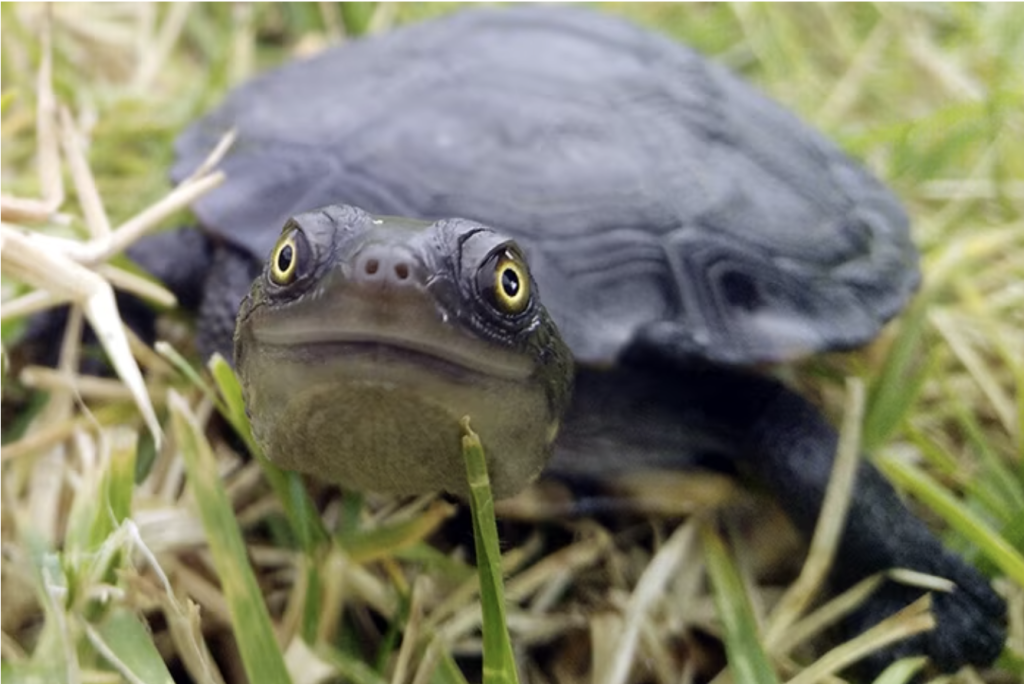
The now not-so-common snake-necked turtle. (Ricky Spencer)
“Every time I do some work [in river systems], everyone wants to come and talk turtles,” Ricky says smiling. “People want to be involved.”
It was through these conversations with everyday people that Ricky first realised there was a need for information about how to help and protect turtles. In 2014 he had a Eureka moment and created an app, which in 2023 helped him and his team win an actual Australian Eureka award for Innovation in Citizen Science.
“I kind of had this idea on a trip down to the Murray River. I was going from community to community, government agency to government agency, talking turtles and seeing the declines [in turtle numbers]” Ricky recalls. He realised if they could log all this information into one centralised source, they would have a great map of turtle activity across the region. Quickly acting on this insight, Ricky created the TurtleSAT App as he sat in the car. “It was just a prototype initially, just to show people.”
This small innovation has now expanded into a fully realised real time satellite-based turtle location app, which anyone can use to record or discover information about their local freshwater turtle populations. The benefit of this app is not just that it increases awareness and knowledge about turtle habitats and movements in real time, but it can also be used by ecologists, scientists and conservationists to help pinpoint key potential trouble spots where turtles may need a bit more help in the future.
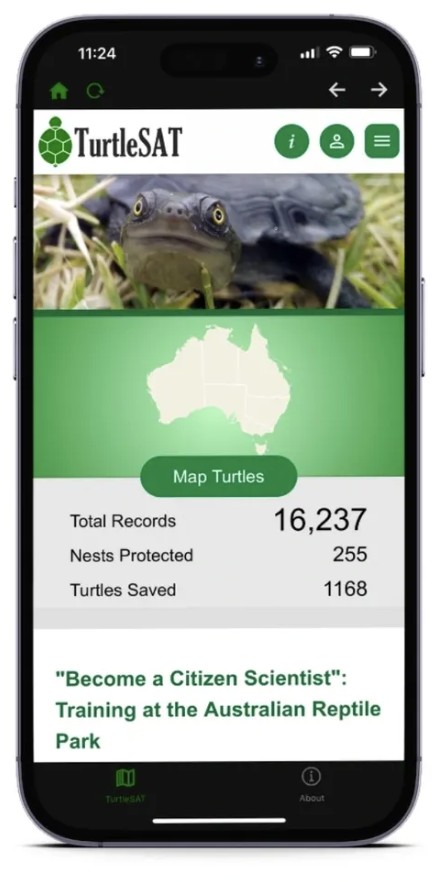
The TurtleSAT app was developed by Ricky Spencer in the back of a car in 2014.
TurtleSAT was the first fully integrated citizen science app to focus on turtles, and was based on similar apps already available, like FeralScan. FeralScan was launched in 2011 as part of a government initiative to monitor the numbers and locations of feral animals such as cats, deer, foxes and rabbits.
Monitoring turtle numbers is incredibly important, but as Ricky continued his ecological work, he realised that there was much more that could be done by ordinary people in helping to protect and preserve freshwater turtles.
1 Million Turtles was conceived by Ricky off the back of the TurtleSAT app, and developed by a team across Western Sydney University, La Trobe University and University of New England. “It’s not just about people recording where they see them, it’s a citizen science program to get people to actually do the conservation,” Ricky explains.
Launched in 2021, the program is designed to help the community monitor turtle nests, rescue adult turtles from roads and actively protect nesting sites from predators. The name of the organisation, 1 Million Turtles, comes from Ricky’s belief that we can increase turtle populations by 1 million through simple acts of monitoring and preventative conservation.
“If we can get 1 million people saving one turtle [each], or saving a nest or helping to build a turtle island, or picking up turtles off roads, we can get to a million turtles relatively quickly.”

Citizen Scientists check on a previously protected turtle nesting site to find all the eggs successfully hatched. (Courtesy 1 Million Turtles)
A million may seem like an extraordinary number, but Ricky believes we can get there and through TurtleSAT and the 1 Million Turtles project he is keeping a tally. An estimated 1287 adult freshwater turtles and 558 turtle nests have been saved through citizen endeavours according to the latest statistics on the TurtleSAT site.
“Each of the nests we save can have 30 or 40 hatchlings. Every female turtle that someone picks up off the road could live up to an additional 40 – 75 years. Every year she is producing 20 or 30 eggs, and that is potentially thousands of hatchlings just by rescuing one turtle off a road.”
Many people think that turtles are found only in the coastal and river land regions of Australia, yet the waterways of the Blue Mountains have a number of important turtle habitats. The Lagoon in Glenbrook in the Lower Mountains has a turtle basking area and island where turtles can regularly be seen sunning themselves in the warmth of the afternoon. Other colonies have been documented in Mount Victoria, Woodford, Faulconbridge and, Ricky reveals, the Springwood Golf Course has a happy, healthy group of turtles who regularly wander the grounds.
“If you have a garden pond, or a dam on your property, you are likely to have a visiting or resident turtle somewhere nearby,” Ricky says, which is why citizen science works so well for these companionable little creatures.

Two short neck turtle hatchlings discover the world. (Courtesy 1 Million Turtles)
Turtles cohabit with humans extremely well and the partnership is beneficial for everyone, with turtles not only keeping waterways clean and free of debris, but also helping keep down mosquito numbers, eating the larvae in garden ponds, dams and natural waterways.
There are a number of threats to our local turtle populations which we can help to prevent or alleviate.
Bushfire threat is an issue for turtles just as it can be for humans, potentially destroying nests and habitats as well as damaging water quality. Garden pesticides and pollutants getting into waterways is a far more consistent threat, along with the two biggest threats to turtles: cars and feral animals.
Feral foxes can devour an entire nest of turtle eggs or hatchlings in one meal, as well as predate on adult turtles, causing a huge decline in numbers. The current rise in feral fox numbers across the mountains is a concern for turtles and Ricky says the solutions to stopping these predators are not simple.
“Poisoning or trapping foxes in areas where there are turtle colonies has had only marginal effects, as only one fox is needed to create real destruction to turtle numbers.” For this reason, Ricky believes that protecting turtle nesting sites through creating barriers such as protected turtle islands and DIY turtle fences is a much better approach to ensure increasing turtle populations.
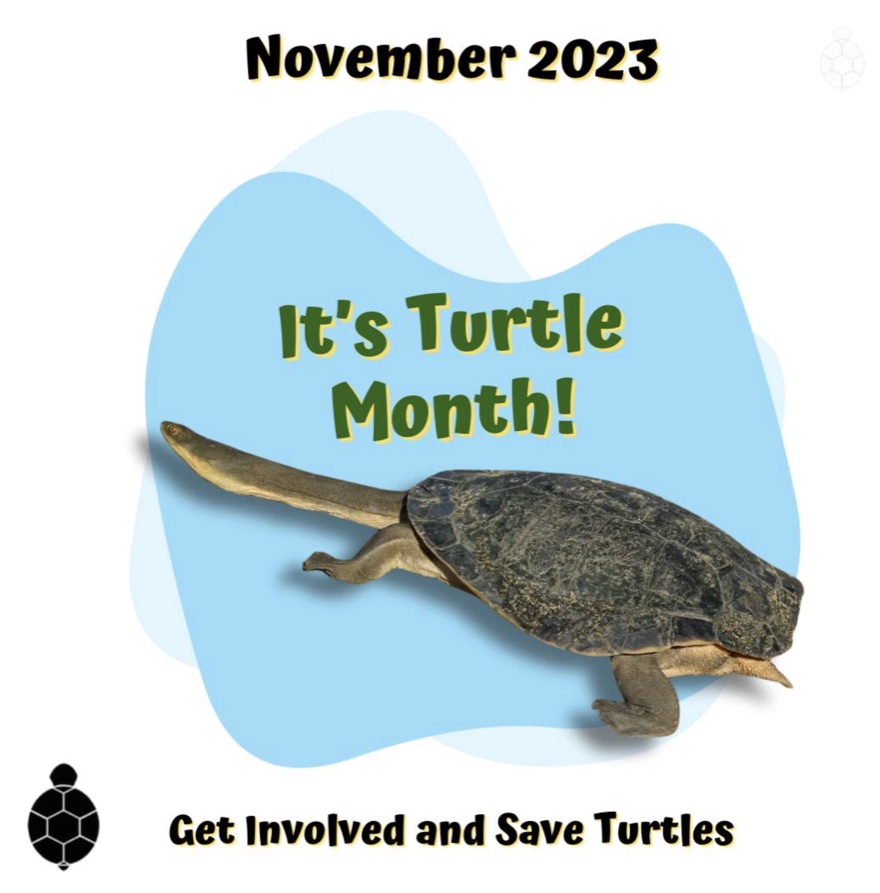
Turtle Month offers lots of opportunities to get involved and help protect Blue Mountain turtles. (Courtesy of 1millionturtles.com)
The 1 Million Turtles website offers a range of ideas and clear information and training about how to protect or report nests for locals who have discovered a turtle nesting site nearby.
“It’s important that if you do want to be involved, you do the training we offer on the website,” Ricky says. It’s free and provides all the information needed to ensure people are helping and not harming the turtles they are trying to protect.
Cars and highways present an equally troubling threat, particularly as turtles move across country during breeding and nesting season. But again, Ricky and 1MillionTurtles offers a practical solution.
“If you see a turtle on the road, or the side of the road, and it is safe to stop, then pull over and remove the reptile to a safe area,” Ricky advises. If you can take it to a nearby waterway, that is ideal but as long as it is safely away from roads the turtle should manage to find its way to an appropriate nesting area.
Logging the turtle’s location on TurtleSAT also helps protect and monitor the animal’s movements over time. In fact, Ricky recommends active observation as one of the best ways to protect both the turtles and their environment. If you are out walking and see a turtle, logging it into the app is a quick and effective way of adding to the data and information which helps protect the entire turtle population. “The best thing people can do is get to know their local wetlands. Visit, interact with the environment, and that way they can monitor any changes like water quality or increase or decrease in turtle numbers.”
November is the best time to get involved, with many of our local turtle species nesting throughout the Blue Mountains. The opportunities to see and record these creatures are at an all-time high.
Take Action:
Use the TurtleSAT App.
The app is free to download and use. Simply install on your phone and record any sighting in your garden, suburb or out on your walks or daily activities. For more information go to TurtleSAT to get detailed instructions as well as loads of turtle resources and information about local species. You can also use FeralScan to log fox other feral animal sightings to help with predator management.
Save a Turtle Pedestrian
If you see a turtle attempting to cross a busy road, and it is safe to do so, pull over and relocate it at a safer destination in the direction it was heading, such as a field, waterway or natural bushland.
Protect a Nesting Site
Turtle nesting sites can be protected using common items available in most hardware stores or even found in your own gardens. For more information and training about how to protect nesting sites, log onto 1millionturtles, complete the online training and then you can be a true nest protector.
If You See Something, Say Something
If you see a turtle in trouble, or any kind of changes to your local waterways such as sewage leaks or pollution, immediately contact WIRES, Blue Mountains City Council (4780 5000) or NSW Environment Line (131 555) to report it. These reports can result in fast and effective action to rescue a turtle or clean up or reverse any pollutant damage.
Protect Our Waterways
Healthy waterways are imperative for everyone, including turtles, so making sure you don’t hose off pesticides or chemicals into stormwater drains is a simple way to protect all aquatic species in our local river systems.
Remember, drains are just for rain! What runs down our streets ends up in our creeks.
Wash your car on the lawn, not in the street, so that detergent goes into the soil instead of your street drain.
Waterway experts also suggest planting native grasses on the edges of your property and near stormwater drains: these slow down stormwater and help filter out contaminants like silt, pesticides and fertilisers.
Other ways to protect waterways are by managing runoff from homes (e.g. by installing a rainwater tank and plumbing it into toilet and laundry or building a home rain garden), picking up dog poo and keeping other pollutants out of stormwater drains.
Create a Turtle Oasis
Creating a pond or water feature in your garden can offer a great space for turtles to feed and relax. If you have one of these on your property, make sure it is protected from pets and turtle friendly (not fenced off) to make any local turtle feel welcome.
Get Arty
Organise a kid friendly community or school event where participants can paint turtle rocks and learn about turtle conservation. Check out some of the 1 Million turtles and TurtleSAT art events.
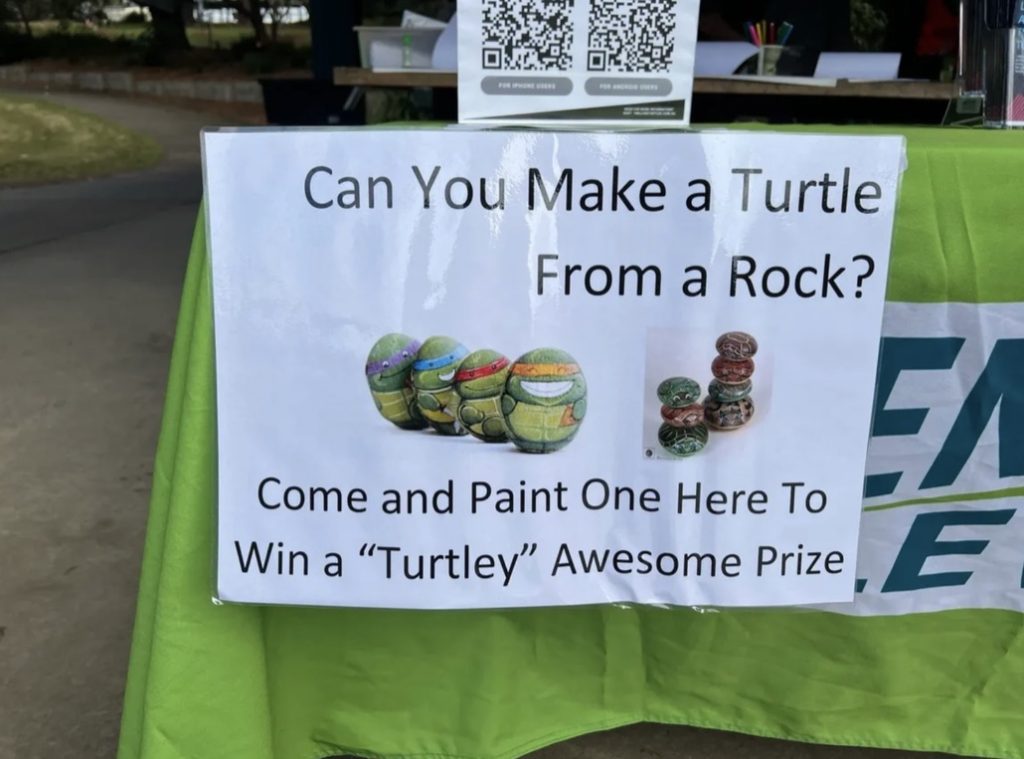
Handmade Turtle rock painting workshops and events are an arty way to raise turtle conservation awareness.
Join the National Nest Predation Survey
Held across the rest of the year, the national survey allows anyone to monitor predator activity on turtle nests by creating ‘fake’ turtle nests and recording predator attacks upon the contents. Although the survey is suspended during actual turtle nesting times in November, you can register your interest to participate and find out more about this backyard citizen science project at 1millionturtles nest predator survey.
This story has been produced as part of a Bioregional Collaboration for Planetary Health and is supported by the Disaster Risk Reduction Fund (DRRF). The DRRF is jointly funded by the Australian and New South Wales governments.
